This year’s British ecological society (BES) conference was the largest ever hosted (not counting the joint meetings with other societies), with more than 1200 participants. This large number was reflected in many parallel sessions and topics, ranging from microbial ecology to macroecology and biogeography, from very specific species interactions to whole ecosystems and from theoretical or computational ecology to very applied conservation and restoration ecology. There was plenty of food for thought for everyone’s taste, but at times it was difficult to keep the overview. Fortunately, the plenary lectures helped keeping things a little bit more general, by discussing important issues in ecology, for example communicating research, contextualizing, i.e. explicitly mentioning scales for biodiversity studies and considering in parallel above-ground and below-ground communities.
I must say, I really enjoyed the whole conference. There were so many great contributions by great scientists. Personally, I really liked the talks of Alexandra Wright, James Buckley and Kimberley Simpson, who spoke about the effects of living plant diversity on the microclimate, herbivore pressure and plant defense along an environmental gradient and growth-strategies respectively. – Seraina
It was great to meet ecologists working on different topics like marine ecology, or theoretical ecology. I could discuss with many people and had some really relevant insights for my project. There were many great talks, and it’s difficult to choose, but I think my favorites were the presentations of Ian Donohue on ecosystems stability, Jakob Assmann on remote sensing of the Greenland flora and Korinna Allhoff on competition in seabeds. – Caroline
I am feeling particularly inspired after this conference, especially to explore energy fluxes in grasslands thanks to Andrew Barnes and to link metabolite variation to growth defence trade-offs thanks to a great talk by Tom Walker. I’m looking forward to the BES conference next year already! – Tosca
It had been some years since I last attended a BES Meeting but I enjoyed every moment there. I met all friends and I made new ones that hopefully will lead to some sort of collaboration in the future. I really enjoyed plenary talks by Jonathan Chase and Esther Ngumbi, truly inspiring for ecologists in any stage. I also liked the presentation by Korinna Allhoff about Bryozoa coexistence and Ainhoa Magrach’s adventures pursuing hummingbirds. Finally, I must say that lab members dancing skills are on point! – Hugo S.
The BES 2019 has been a fantastic event to reconnect with some of my favorite Soil Ecologists working on soil organisms and the ecosystem processes they drive; with no specific order Nicolas Fanin, Ciska Veen, Paul Kardol, Karina Clemmensen and Franciska De Vries. I also think that the BES meeting was great to know better my colleagues as we went there as a group! Overall, it was a good place to make stronger bounds between us and plant seeds for future research projects! – Nadia
The Allan group contributed three posters and four talks to the conference in different sessions. Tosca, Thu Zar and Caroline showed posters about primary results and planned analysis about collembola, plant-herbivore interactions and plant species coexistence in the PaNDiv experiment. Anne presented her work about top-down and bottom-up regulation of herbivores in David Wardles island study system. Nadia talked about how saprotrophic and mycorrhizal fungi decompose litter in the face of nutrient deposition. Hugo used the large data sets of the biodiversity exploratory to show that there are two main thresholds of land use intensity (one for taxa and one for functions), which once crossed cause rapid ecological changes and likely hysteric behavior. And Seraina showed that even though diversity causes comparable patterns in different ecosystem functions, different species contributed to these patterns and likely also different mechanisms.

Tosca, Caroline and Thu Zar

Hugo, Seraina, Nadia and Anne
The many social activities throughout the conference promoted a relaxed and friendly atmosphere and gave the conference a touch of “school camp” for grown-ups to meet old and new friends. We drank wine and chatted at the welcome mixer, discussed about work-life balance in a workshop and danced ceilidh folk dances at the conference dinner. Overall, the conference was very inspiring, and we all came home with a pile of notes and lists of soon-to-be-out studies we must read. We are definitely looking forward to the 2020 meeting in Edinburgh!
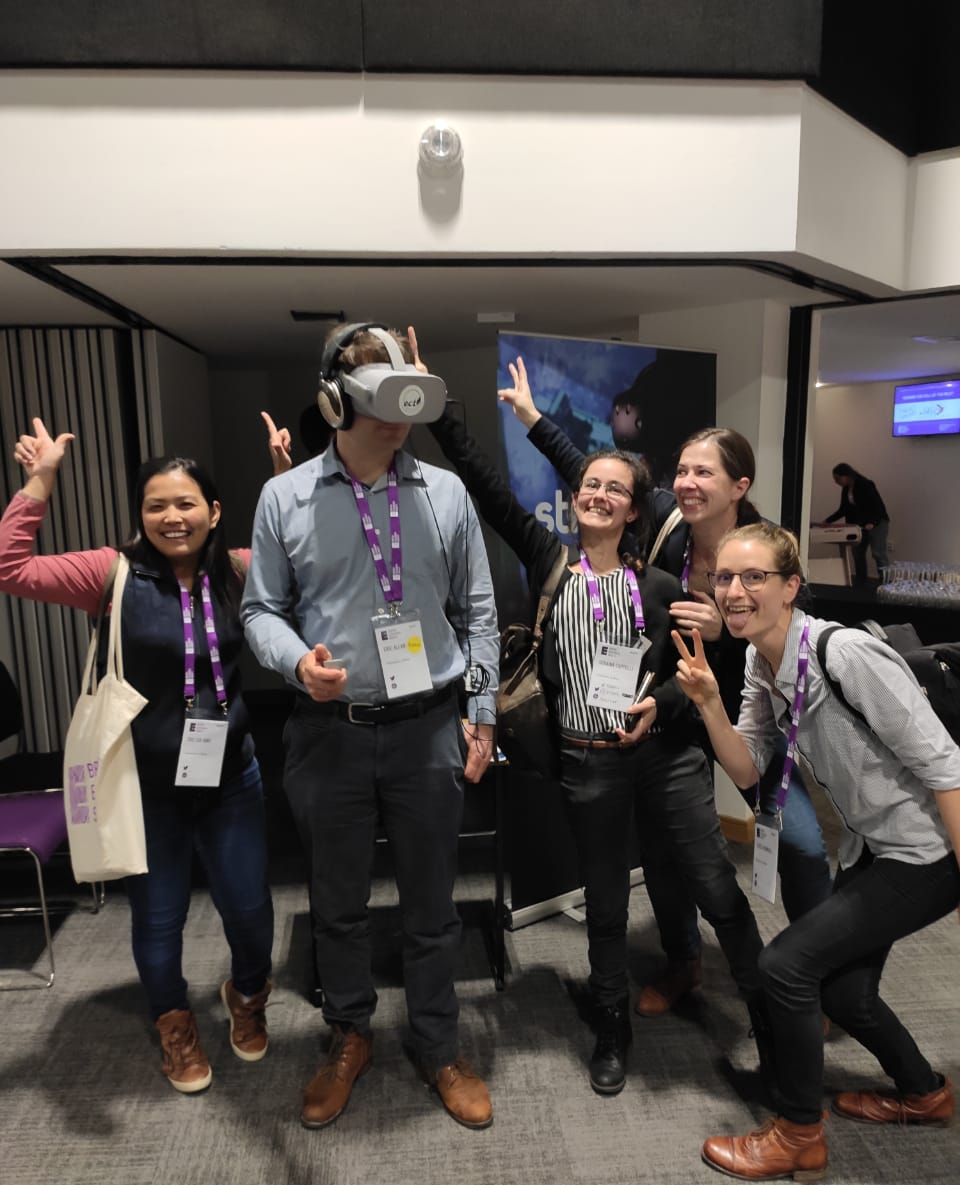
Thu Zar, Eric, Seraina, Anne and Tosca


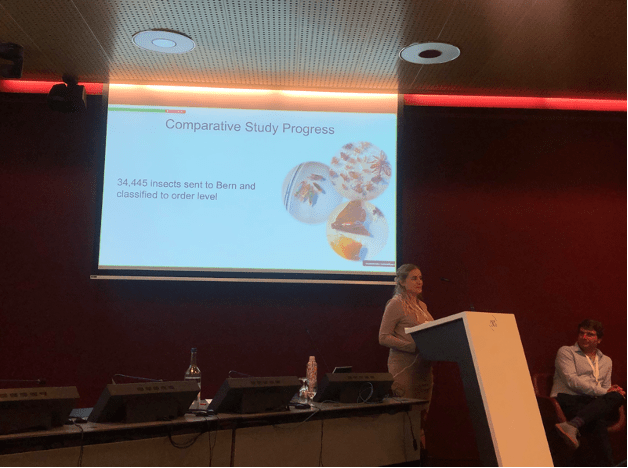

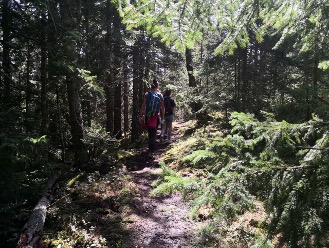

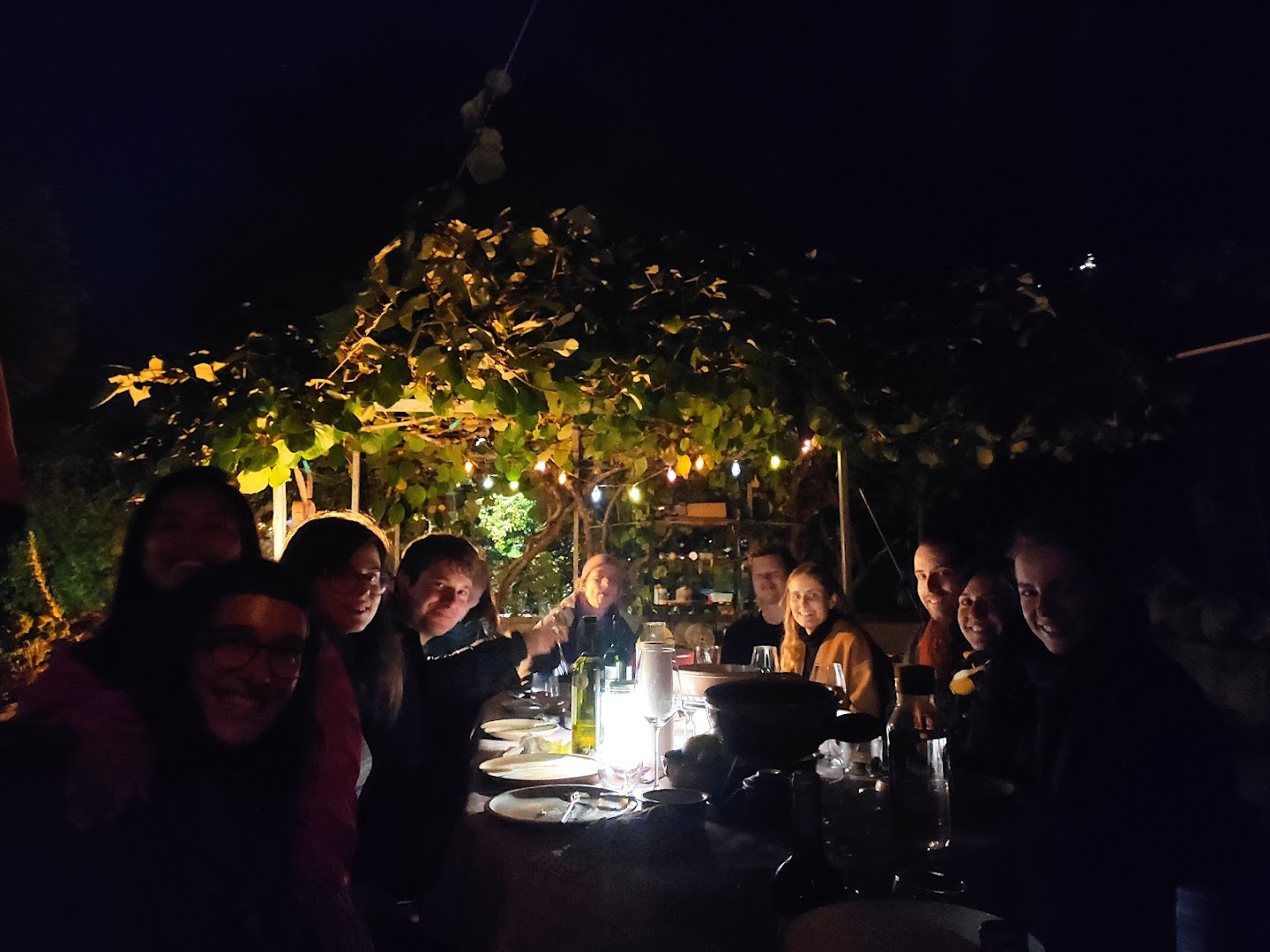


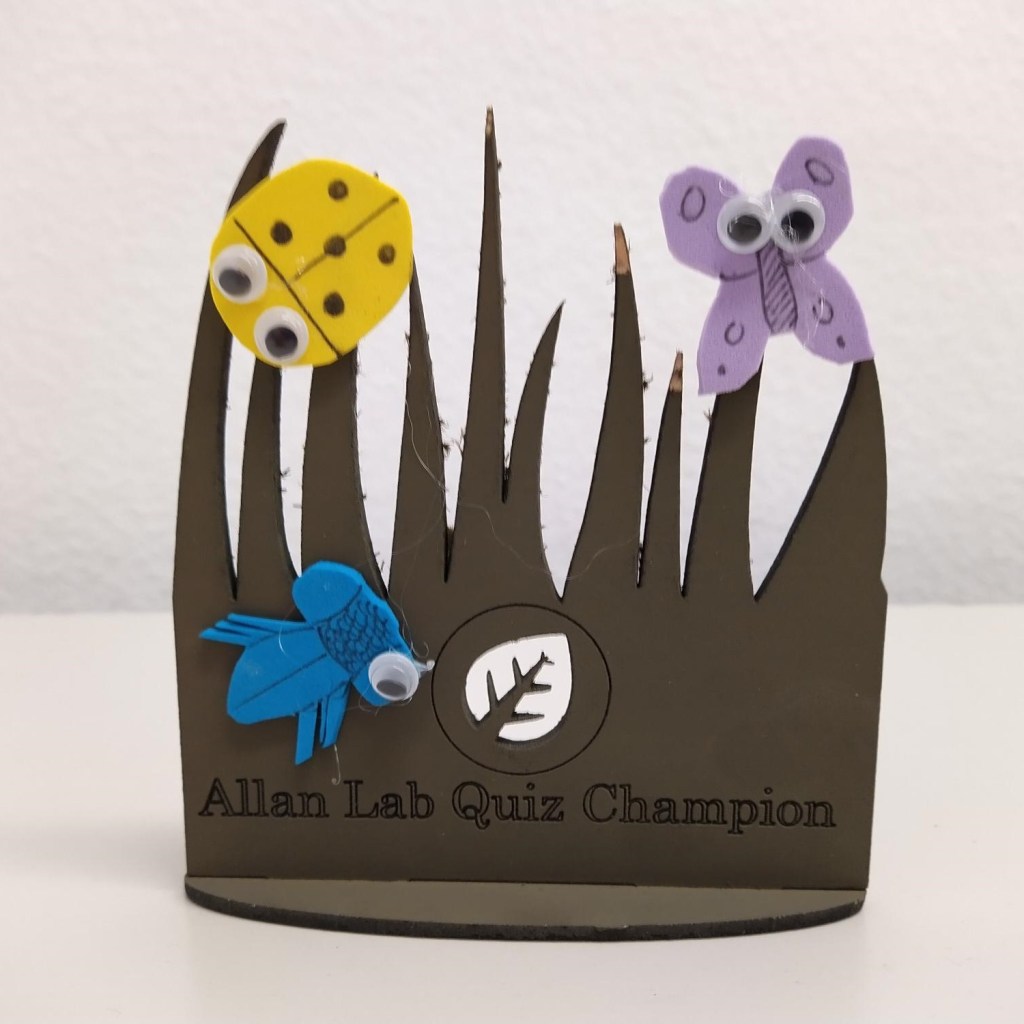

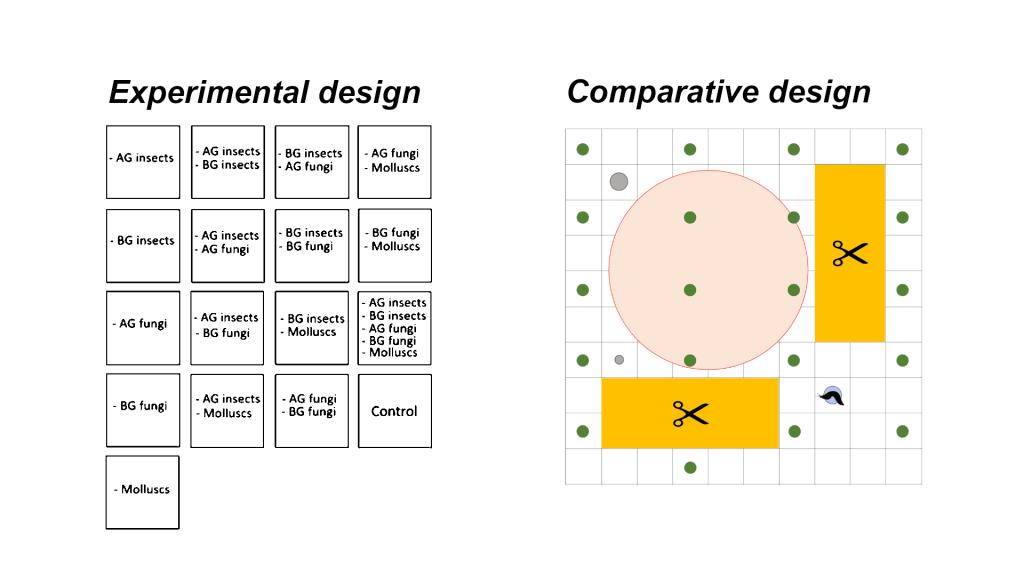
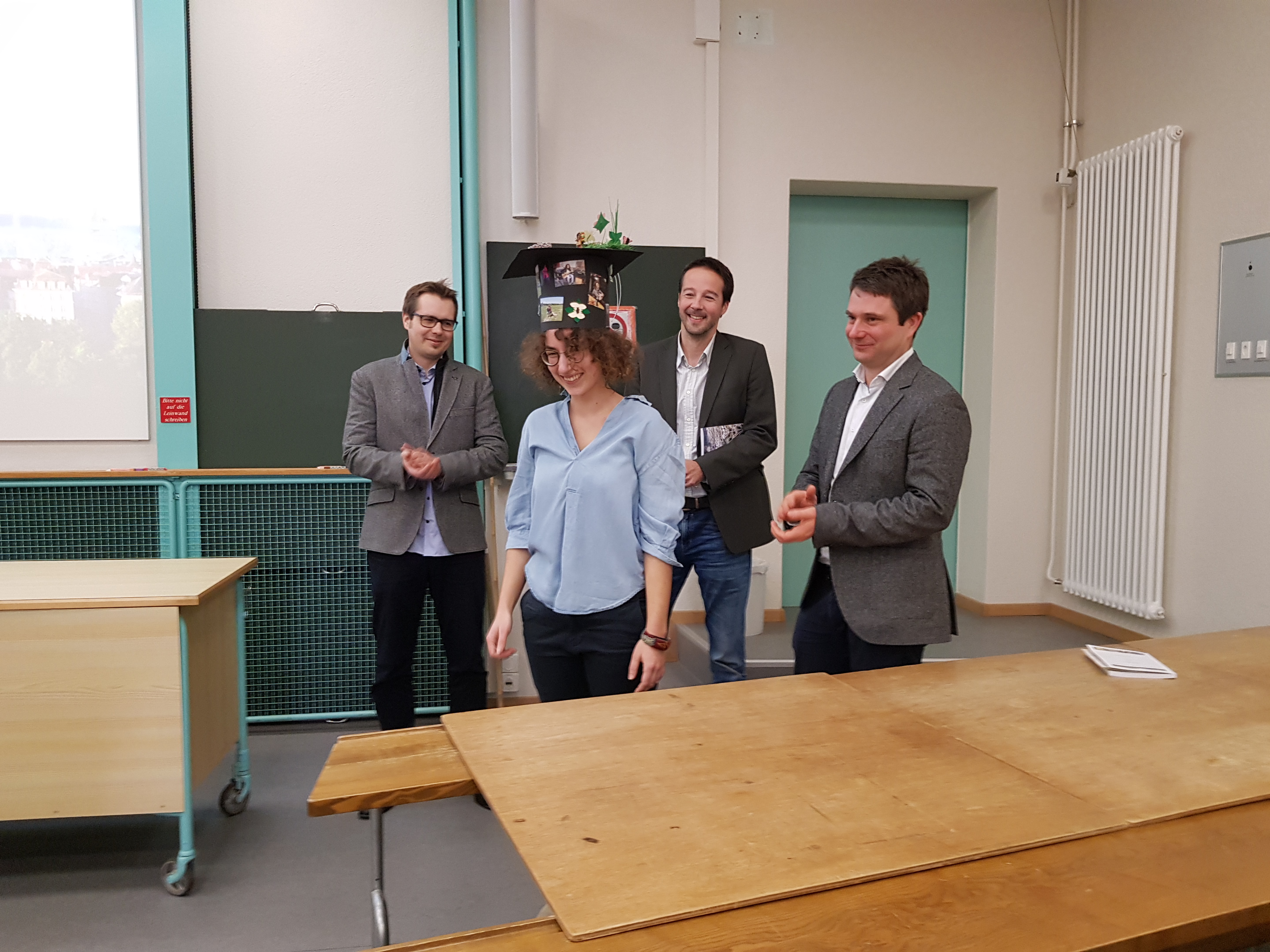 Dr. Pichon
Dr. Pichon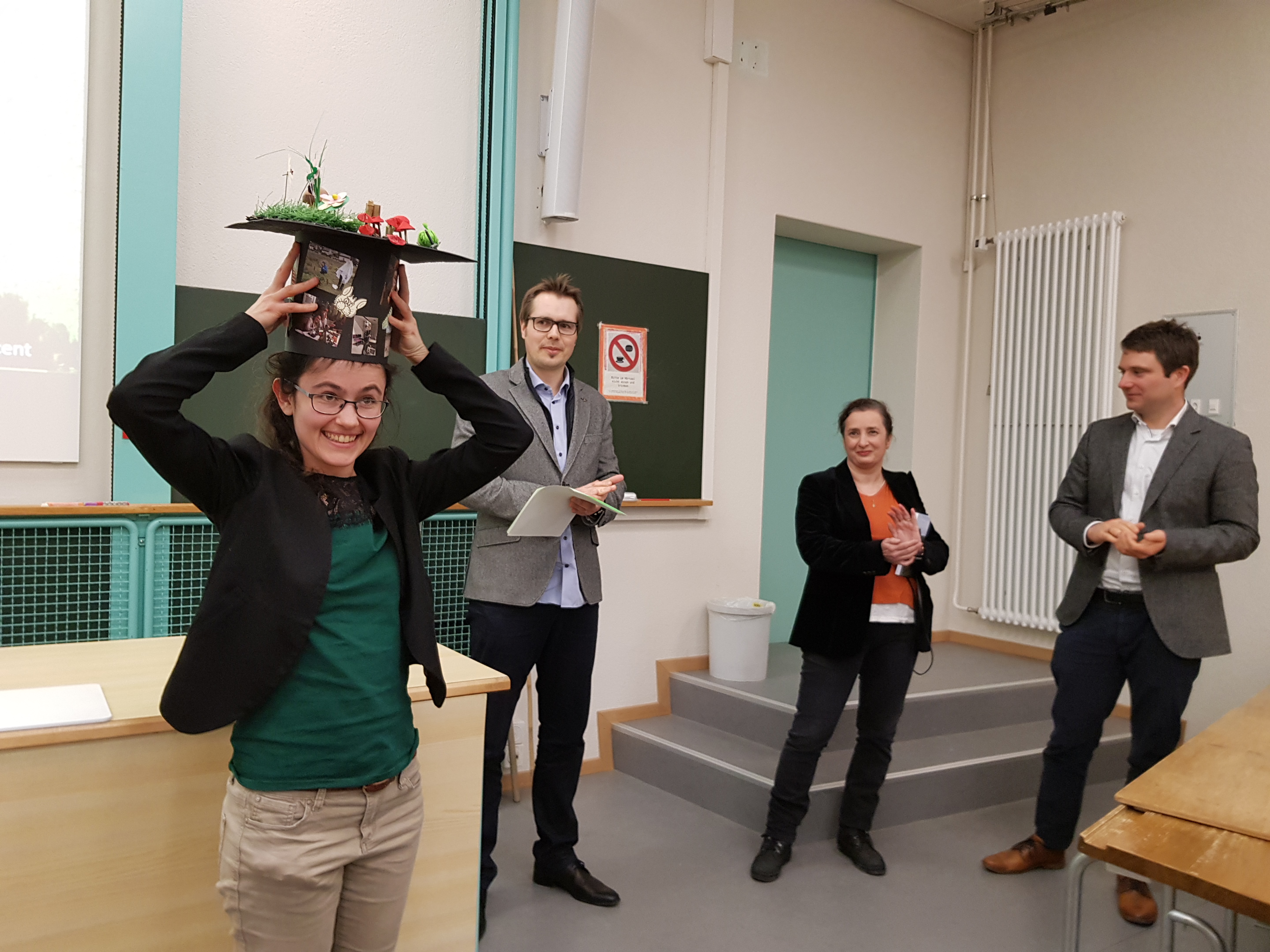 Dr. Cappelli
Dr. Cappelli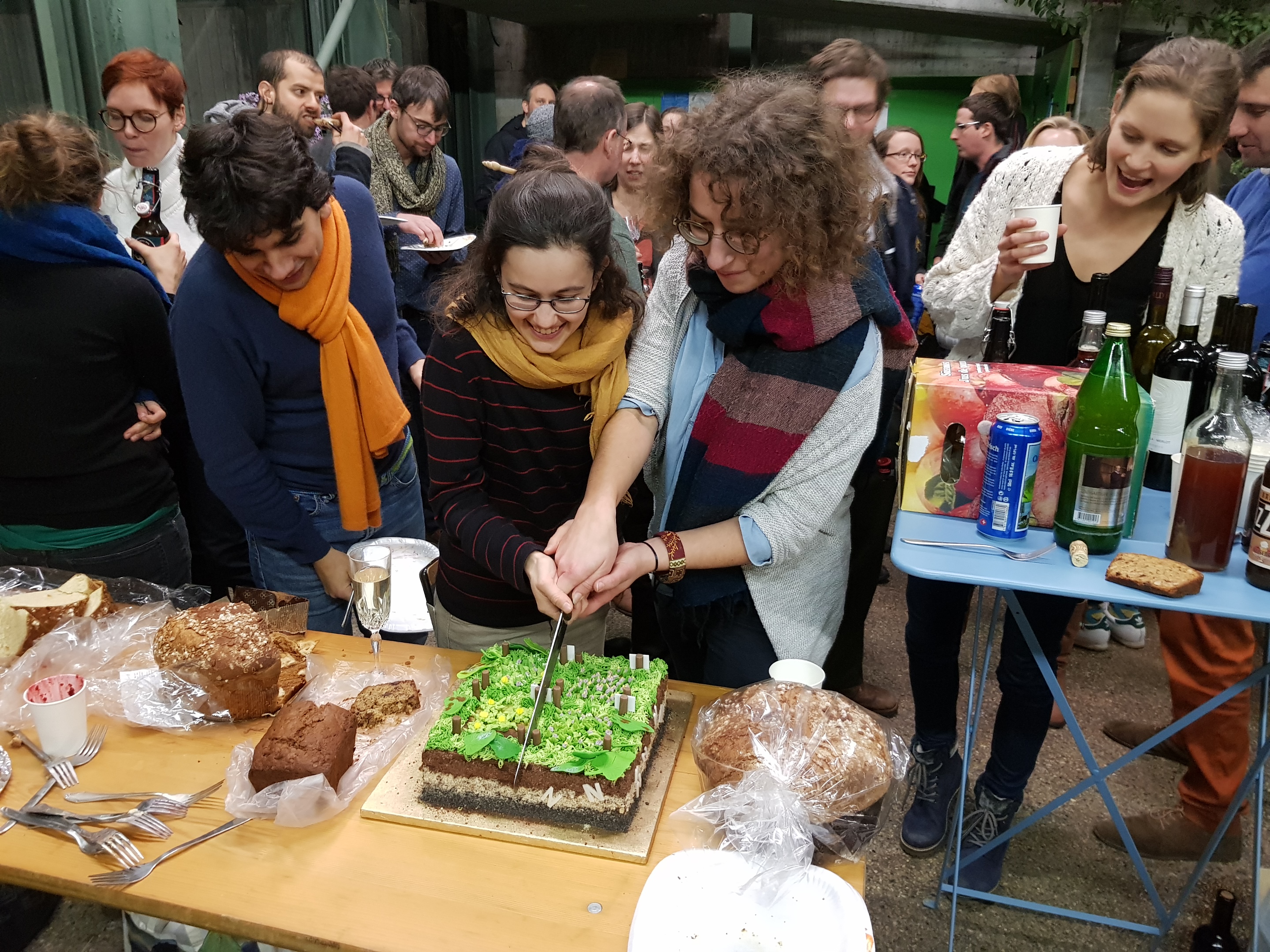





You must be logged in to post a comment.